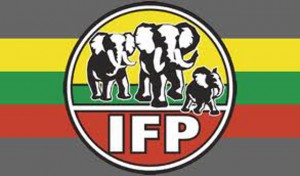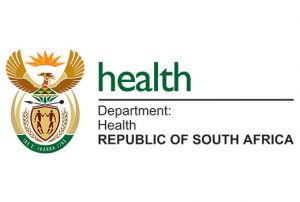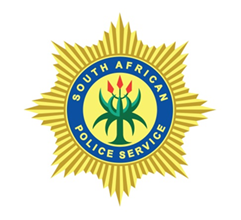Geen plek meer in Suid-Afrika vir ʼn enkel Afrikaans-universiteit nie. Dit is een van die kommerwekkende antwoorde wat Blade Nzimande, minister van hoër onderwys, op geskrewe parlementêre vrae van die VF Plus gegee het waaruit dit nou duidelik bly dat Afrikaans se dae getel is as tersiêre onderrigtaal by openbare instellings, sê adv. Anton Alberts, die VF Plus se parlementêre woordvoerder oor hoër onderwys.
Op ʼn vraag van adv. Alberts oor hoe Nzimande gaan verhinder dat die Noordwes Universiteit op Potchefstroom heeltemal gaan verengels soos met RAU (nou Universiteit van Johannesburg) gebeur het, is die vraag bloot geantwoord dat Afrikaans kan saamstaan met ʼn ander taal soos Engels om nie-Afrikaanssprekendes ook toegang tot die universiteit te gee.
Nzimande noem dan die voorbeeld van Stellenbosch wat nou beide Afrikaans en Engels akkommodeer.
Adv. Alberts sê Nzimande se argument in die verband is deurspek van foute en ʼn omseiling van die vraag aangesien dit algemeen bekend is dat waar ʼn universiteit Engels en Afrikaans onderrig, Engels eindelik die verstektaal word weens die demografiese verandering wat by die instelling plaasvind, net soos by RAU gebeur het.
“Die minister laat nou duidelik die masker sak oor die toekoms van Afrikaans. Hy propageer openlik die ANC-mantra dat die meerderheid regeer en dat minderhede geen regte het nie. Hy vergeet gerieflikheidshalwe dat Stellenbosch eers verlede week die dubbelmedium-opsie gekies het. Ek sal my parlementêre salaris daarop verwed dat ook dié universiteit oor vyf jaar nie meer oorwegend Afrikaans gaan wees nie.
“Die minister toon boonop sy algehele onkunde rakende Suid-Afrika se verpligtinge teenoor minderhede soos uitgestippel in artikel 27 van die Internasionale Konvensie oor Burgerlike en Politieke Regte waarvolgens minderhede se reg om in hul eie taal by ʼn eie instelling onderrig te word, deur die staat ondersteun moet word.
“Die ANC se obsessie met transformasie wat maar beteken swart oorheersing deur Engels – eintlik ʼn koloniale taal – is besig om minderheidsregte te ondermyn en dit is nou tyd vir minderhede om op te staan en vir hulself plek uit te kap in hierdie transformasie-woud waarin ons na 1994 gelaat is.
“Die VF Plus ondersteun daarom Solidariteit se omskepping van Akademia na ʼn gemeenskapsuniversiteit, ten volle.
“Die VF Plus sal intussen voortgaan om alle interne remedies uit te put rondom die verkryging van minderheidsregte en indien ons nie sukses kan behaal binne die Suid-Afrikaanse stelsel nie, sal ons al hoe meer internasionale liggame nader oor die ANC se konstante verbreking van hul verpligtinge in die verband,” sê adv. Alberts.
Question 2319
Date of publication of internal question paper: 07/11/2014
(Internal question paper 25 of 2014)
Adv A de W Alberts (FF Plus) to ask the Minister of Higher Education and Training:
1)How will he discharge his constitutional obligation of promoting mother tongue education at each university ;
2)how is he going to guarantee that Afrikaans as medium of instruction will not decline if the Potchefstroom campus of the University of North West is transformed by enrolling more English-speaking students, as has happened with the transformation of the former Rand Afrikaans University into the University of Johannesburg;
3)whether he is seeing to it that his obligations are discharged in respect of minorities and their right to be educated in their mother tongue, as contained in section 27 of the International Agreement on Citizen and Political Rights, to which South Africa is
legally bound;
4)whether he is planning to (a) keep at least one Afrikaans university or (b) alternatively create such a university; if not, why not; if so, what are the relevant details?
NW2902E
Reply:
1)The Constitution of the Republic of South Africa declares “the official languages of the Republic are Sepedi, Sesotho, Setswana, siSwati, Tshivenda, Xitsonga, Afrikaans, English, isiNdebele, isiXhosa and isiZulu”. The Constitution also states that “the state must take practical and positive measures to elevate the status and advance the use of these [the indigenous] languages” and that all official languages must enjoy parity of esteem and be treated equitably”, (Section 6 (1), (2) and (4) of the Founding Provisions). The Constitution enjoins the Pan South African Language Board to promote and create conditions for the development and use of these and other languages. This fact is stated so that there is a clear understanding of the obligations for the Minister of Higher Education and Training.
With regard to the provision of languages at institutions of higher learning, Section 29 (2) of the Constitution states that:
“everyone has the right to receive education in the official language or languages of their choice in public educational institutions where that education is reasonably practicable. In order to ensure the effective access to, and implementation of this right, the state must consider all reasonable educational alternatives, including single medium institutions, taking into account –
a)Equity;
b)Practicability; and
c)The need to redress the results of past racially discriminatory laws and practices.”
All of this informs the work of the Department of Higher Education and Training. It should be noted that nowhere in the Constitution is reference made to the ‘promotion of mother tongue education’, nevertheless, this is understood to mean the promotion of all official languages especially indigenous languages that were underdeveloped under the past racially discriminatory laws and practices. In this regard, the Language Policy for Higher Education published in November 2002 is the framework that guides these practices at higher education institutions.
In addition to this policy, there are other mechanisms through which the Department steers institutions towards the development of African languages, such as the allocation of infrastructure and efficiency funds to support the development of facilities for teaching African languages.
In the 2012/13 to 2014/15 infrastructure cycle, R311.654 million was allocated to the category of African Languages, Humanities and Social Sciences. Within this category, approximately R120 million was allocated to various universities for infrastructure projects related to the development of African Languages. In addition, the Minimum Requirements for Teacher Education Qualifications policy published in the Government Gazette Number 34467 of 15 July 2011 requires all new teachers to be at least conversationally proficient in an African language. Currently, there are twenty-one (21) universities offering initial teacher education that are developing the capability of teachers in African languages and contributing towards the revitalisation of African Languages departments at universities, as well as the teaching of African languages in schools.
My Ministry is mindful of the fact that effective and sustainable teaching of African Languages at universities is dependent on the competency in these languages being developed at the level of schooling, and therefore that all languages should form an integral part of the basic education curriculum. The Department is working in close collaboration with the Department of Basic Education to ensure that there is synergy on this important matter, especially concerning the training of teachers.
2)The Department’s role is to implement policies that seek to steer the sector towards transformation and therefore redress the imbalances created by the apartheid system. In line with the Higher Education Act, a university’s language policy is and remains the responsibility of the University Council and not of the Minister of Higher Education and Training. University leadership must be mindful that universities in South Africa are national assets that have to be accessible to every South African irrespective of their ethnicity, creed or mother tongue. The Department fully supports Afrikaans as a medium of tuition, however it could be used in addition to another language like English so that access is not denied to non-speakers of Afrikaans. For example, institutions like University of Stellenbosch have progressively introduced English as an additional medium of tuition without compromising Afrikaans as medium of academic expression.
3)The Department holds the view that the development of African languages is tied to social justice, which is an indispensable element of nation building and the promotion of social cohesion in our country. Therefore, the development of all official languages is a necessity for human rights and dignity, access and success at post-school education institutions, preservation of our heritage,
communication and culture. I am duty-bound to develop all our languages especially the African indigenous languages given their history of marginalisation. The status quo makes it practically impossible for all South African citizens to be educated in their mother tongue due to the under-development of all indigenous languages. Indigenous languages have not attained a level where the vocabulary is advanced enough to be used as a medium of tuition. It would not be feasible now for the Department to insist that every citizen be taught in their mother tongue. This will be possible once the Pan South African Language Board has created conditions for the development and use of these languages in education. In the meantime, the Department is encouraging higher education institutions to develop and expand the current vocabulary of indigenous languages to high academic standards for delivery of teaching and learning. Once developed, the implementation of these languages as mediums of tuition would have to commence with the basic education system, from the lowest grade, building up to grade 12 and eventually to post-school education and training system. This task will require dedication, skilled personnel, time and substantial financial resources.
4)In responding to this question, the honourable Advocate Alberts is pointed to the following paragraph 15.4. of the Higher Education Language Policy for Higher Education, which deserves citing in its entirety:
“The Ministry acknowledges that Afrikaans as a language of scholarship and science is a national resource. Therefore, it fully supports the retention of Afrikaans as a medium of academic expression and communication in higher education and is committed to ensuring that the capacity of Afrikaans to function as such a medium is not eroded. In this regard, the Ministry endorses the views of the then President, Mr Nelson Mandela, as expressed in his speech to the University of Stellenbosch in 1996, on the occasion of the acceptance of an honorary doctorate that:
“The real issue is not the extermination or preservation of Afrikaans as an academic medium. Rather, the question is this: Amongst ourselves, how are we to negotiate a dispensation for the South African university system that meets the following three criteria? Firstly, that a milieu should be created and maintained for Afrikaans to continue growing as a language of scholarship and science. At the same time, non-speakers of Afrikaans should not be unjustly deprived of access within the system. And moreover, that the use and development of no single language medium should – either intentionally or unintentionally – be made the basis for the furtherance of racial, ethnic or narrowly cultural separation”. 25 October 1996”
I share the conviction expressed in the Language Policy for Higher Education that the sustainability of Afrikaans in higher education does not necessarily require the designation of a university as a ‘custodian’ of the academic use of the Afrikaans language. Therefore, I neither plan to designate one of the existing universities as an ‘Afrikaans language institution’, nor intend to create a university for any other specific language as that would be unconstitutional as explained above.









